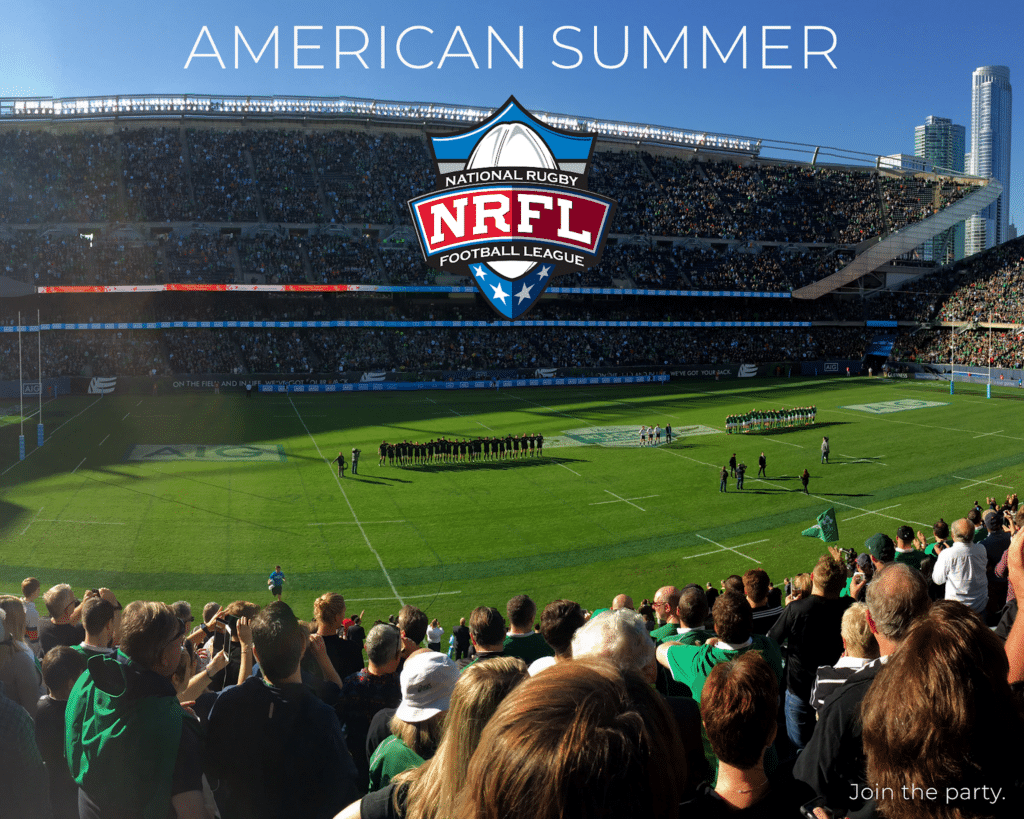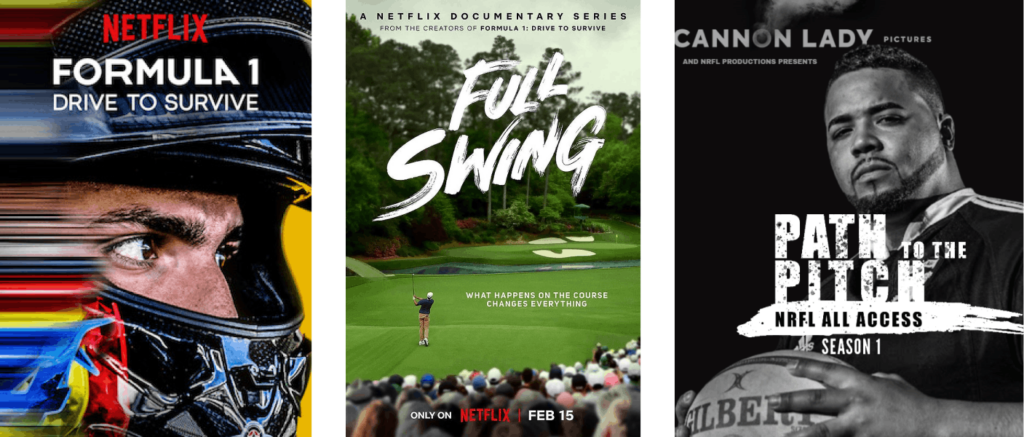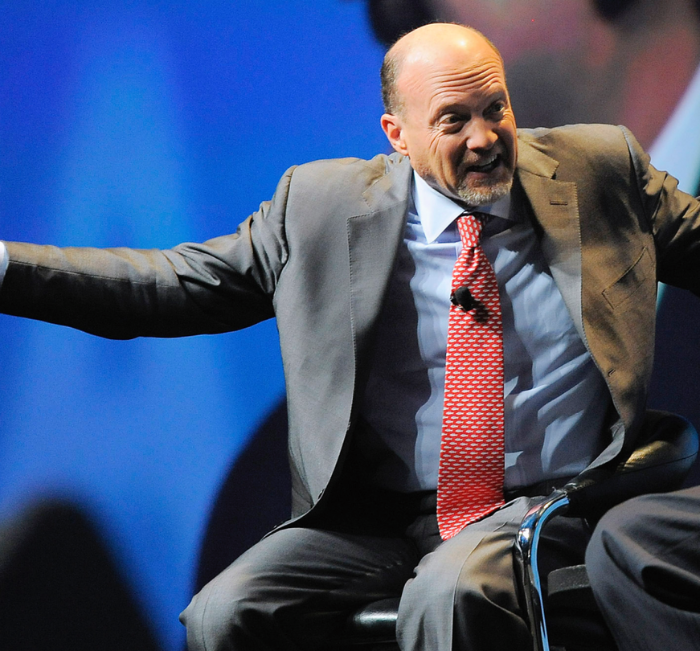Welcome to Deep Dives, where we explore interesting companies & strategies in the alt investment space.
Last week’s Sunday Edition on Investing in Rugby was one of the most popular issues we’ve ever done. The feedback we got was terrific, and hundreds of community members wanted to find out more about how the NRFL plans to take rugby mainstream.
It’s not everyday you get to witness a sports league being brought to life. And it’s even rarer to be a part owner of that league.
So today, we’re taking a closer look at the National Rugby Football League. We’ll go into the big challenges rugby faces, how the NRFL plans to tackle them, and why now is the time for action.
Note: This issue is sponsored by our friends at the NRFL. As always, we think you’ll find it informative and fair.
Let’s go 🏉
Table of Contents
What are rugby’s big challenges?
Mismangement
It surprises most people to learn that rugby has been around for 60 years longer than American football. Yet, while the NFL is an $18 billion empire, rugby today has just one semi-professional league in the entire United States.
As we talked about last week, the sport’s financial history isn’t pretty. Chronically underfunded and mismanaged, the National Rugby Organization, USA Rugby, has been bankrupt three times!
The most successful semi-pro rugby league in the US is something called Major League Rugby (MLR). But they’re plagued with issues too. Last year, two of the league’s teams, the Austin Gilgronis and L.A. Giltinis (what’s up with these names?) were both disqualified and liquidated.
Low pay
Yes, MLR athletes do get paid — a big step up from where they were decades ago. But lower-tier players earn about $15 an hour. Even the best players barely scrape more than minimum wage. Hardly fair compensation considering the work pro athletes put in, and what the sport does to your body.

Stigma
The over-arching problem with rugby is the negative stigma.
Put yourself in the shoes of a 6 foot 6 inch high school giant. You play football, basketball, and you wrestle. You dominate every sport you play. After graduation, are you really going to consider playing rugby in college, when other sports have far more opportunity and, if you’re lucky, can potentially pay you millions?
Exactly.
Nobody in the US really thinks of rugby as a “professional” sport. High school athletes may have seen a few matches, and may even love the sport! It’s not that the sport isn’t badass (it is) or challenging (it totally is), but rather that it can’t yet compete.
Until rugby can pay them a “market rate” salary, most athletes won’t consider it a viable career path.
Why doesn’t rugby pay well?
The lack of funding boils down to how late American rugby was to the party. It only became professional in 1995, while Jordan’s Bulls were bringing the NBA to global audiences, and the NFL was finding its stride.
The explosion in sports pay (and valuations) has been fueled by broadcast rights. Back in the 80s and 90s, the most lucrative deals went to the preexisting leagues — the NBA, the NFL, MLB, and so on. Sports like rugby fell behind and were forced to scrounge for scraps.
But despite it not taking off in America, rugby continued to grow globally, especially amongst the Commonwealth Countries.
So putting it all together, today you have an extremely popular global sport — with over 877 million followers globally — that accounts for less than 1% of global media rights. This means that despite the sport’s popularity and growth, it has a disproportionally small slice of the ad market. The eyeballs are there, even if the money isn’t….yet.
In a nutshell, rugby is arguably one of the most under-commercialized sports in the world.
Why America could be rugby’s “sleeping giant”
The NRFL believes rugby is ready for an American takeover.
Are they biased? Sure, a bit. But let’s look at the facts.
- We know Americans are crazy for violent tackle sports.
- We also know there is room for more than one.
- America is set to host the 2031 Rugby World Cup (aka rugby’s Superbowl). (Remember, this is the third largest sporting event in the world, behind only the Olympics and the FIFA World Cup)
- Grassroots competitions are blossoming
- College rugby is one of the fastest-growing club sports in America.
- And private equity has already gotten involved. American VC firm Silver Lake purchased a $200m stake in the New Zealand All Blacks, valuing the team at $2 billion.
American private equity invested in cricket and made incredible returns. Now they’re investing in rugby.
Everything is lined up for rugby to explode in the US. The sport just needs someone to take them there.
And that’s exactly what the National Rugby Football League plans to do.
The NRFL’s strategy
The NRFL has one major goal – to bring this exciting, brutal, beautifully delicate sport mainstream (in the US).
In a nutshell, they aim to become America’s first fully professional rugby league.
The NRFL knows this market. They know what it’s going to take for a fully professional rugby league to take flight. They understand that the money, athletes and the infrastructure are already there on the sidelines, just waiting to be deployed.
What’s missing are two big things: awareness, and opportunity.
Athletes, fans, and investors simply are not aware of the opportunity to watch the sport. To play the sport. To own the sport.
To do this, they know they have to be more than just a rugby league. They have to become a media company.

Succeeding where others have failed
The NRFL team has been around the block a few times. They’ve watched as USA Rugby bankrupt themselves (thrice!), and as COVID ravaged the economic stability of rugby competitions around the world.
So a big key to their success will be the NRFL’s unique ownership structure.
A better ownership structure
Most sports clubs in the United States are privately owned. When you have billion-dollar enterprises like the MLB and NFL, this can work like a charm.
But for fledgling leagues just getting started, investor-operator ownership can spell disaster. Why? Because all it takes is one bad owner to destroy a team and bring the rest of the league down with it.
In fact. we’ve seen this in Major League Rugby, where some owners abruptly stopped subsidizing athlete housing and liquidated teams without even consulting the players.
Instead, the NRFL’s ownership group owns equity in all eight founding teams. Rather than investors buying full teams themselves, they can get a stake in the entire league and leave management up to those who actually know how to manage.
This approach also supports a more equitable competition. Club presidents, athletes and the NRFL executive team all get a say in the league’s operation (something desperately missing in current versions of the sport.)

Diversifying revenue
COVID nearly returned World Rugby to its amateur (i.e. unpaid) roots. But through the potential disaster came an important lesson — rugby needs to diversify its revenue.
Private equity entering the rugby landscape was the first step. But the NRFL has even more profit avenues in mind:
- Events and ticket sales. Obvious. This is where basically all of of rugby’s money pre-COVID.
- Merchandise. It’s about time.
- Gaming. Think about what games like NBA2K and FIFA do for awareness of basketball/soccer
- Digital products. Blockchain and Web3. Yes, the market’s dead now. But the underlying technology is still good.
- Clinics and camps. It all starts with the youth. Engage the young kids and you’ll uncover the next generation of American rugby players.
- Sponsorship & licensing. Corporate sponsorships pay bills and establish further connections with fans
- Media Operations. More on this below.
The NRFL has watched other startup sports leagues rush to market while undercapitalized, only to fail at the first sign of financial adversity.
However, the NRFL believes building a diversified revenue stream and patiently raising long-term capital will help them avoid this fate.
NRFL Studios: Becoming a global media company
Lots of people will tell you sports is mostly about winning, but I disagree.
I think it’s about the stories.
Like all sports, rugby is filled with stories. Good guys, bad guys, thrilling tales, charged emotions, history, and folklore passed down through generations. This is exactly what that the NRFL wants to tap into.
To achieve this, they’re creating a division called NRFL Studios.
They’re getting to work on two new productions: a docuseries, and a Hollywood film.
NRFL Docuseries
Following in the footsteps of Formula 1’s Drive to Survive, the NRFL is creating a similar behind-the-scenes Netflix series that tells the story of badass individual rugby players.
Drive to Survive brought a 21% increase in fandom in F1 racing, and fifty percent (!) of F1 fans say the show got them into the sport.
F1 Racing proved the Netflix formula works. (Or at least, can work. It’s not a foregone conclusion. After all, the Netflix tennis series Break Point was a bit of a bust.)
They want to recreate this for rugby. The documentary will follow the high-octane journey the NRFL is embarking on; the drama of being a professional athlete, the difficulties (and joy) of setting up a new sports league, and the sport’s intense, raw competition.

Hollywood Film
NRFL Studios are also taking its talents to the big screen. The company is producing a Hollywood film based on true Olympic rugby events from a century ago.
It was the very last time Rugby Union was played at the Summer Olympics. The French team entered as heavy favorites – but the game will be remembered mostly for its violence.
Wild brawls broke out among the stands. Pitch invaders did as they pleased. And the police did all they could to get the situation under control.

If you read our issue on what it takes to make an indie film, you know the film crew is everything. The NRFL Studio has already secured an all-star lineup, including an Emmy Award-winning director and producers who have worked on top movie franchises.
The blockbuster flick will come out in the next few years. Keep your eyes peeled.
NRFL’s leadership team
In my research for the piece, it became clear to me that much of rugby’s failures have come due to poor leadership.
Greed, incompetence, and classism prevented the sport from becoming professional. Modern leagues seem more interested in profit than truly fostering/empowering the sport.
The NRFL combats this with an experienced, passionate leadership team that’s been there, done that.
The league was conceptualized by founder and CEO Michael Clements, who is backed by the experience of creating and running litigation finance companies.

He’s supported by Steve Ryan, marketing guru and managing director.

To top it all off, the advisory board is filled with former NFL executives and pro athletes, including:
- NBA Champion Metta World Peace
- Former all-star of both the NFL and MLB, Bo Jackson
- Team operations will be taken up by retired NFL Executive and President Jeff Diamond.
Basically, the NRFL leadership team is deep. They have experience working with every major sports league in the US – NBA, MLB, NFL, NASCAR. Not to mention playing roles in other major companies like Disney, FOX and Nike.
I had the privilege of speaking to Michael and Steve for this article, and what stood out to me most was their passion and desire.
They love rugby, they all have experience, and they’re gonna work their asses off to make this league to work.
The investment opportunity
It’s not very often you get an opportunity to invest in the creation of a sports league. But that’s exactly what the NRFL is offering you.
Investors have a chance to join the NRFL Founders Group Fund.
This gives equity in the league’s first eight rugby teams. You get the joy of partially owning a sports team without any obligation to run it.
In addition, investors will receive a share of the NRFL’s distributed revenue streams, including NRFL Studios.
- You’ll be an investor in the Hollywood film. Investors have a 110% priority return on revenue, meaning they are the first to be paid box office capital.
- You’ll receive a portion of revenue from the upcoming Docuseries.
- NRFL Showcase series. To kick off the league, the NRFL will throw a festival-like event in each of its eight founding markets. Think of it like an all-star weekend, with multiple games and exclusive events.
- NRFL merchandise sales.
- The NRFL high-performance center, where athletes from the NFL and other sports come to learn the skills of rugby.
How to invest in the NRFL
Ordinarily I’d be happy to make a personal introduction to Managing Director Steve Ryan.
But due to a massive amount of interest (400+ people reached out last time!), I cannot make a personal intro to everyone.
However, if you are an accredited investor (either an individual, or part of a syndicate that invests $100k+ checks) and would like more information on how to own equity in the National Rugby Football League, please feel free to book directly on Steve’s calendar.
There are a couple of things to keep in mind:
- Investment is open internationally. So whether you’re a first-timer from the US, or a rugby fan from New Zealand, there may be an opening for you.
- Investors must be accredited.
- Minimum investment varies. Chat with Steve on this.
- The team has secured several Letters of Intent (LOIs) for raising capital.
- This is sexy, but there’s risk involved. Again, talk to Steve.
Additionally, if you aren’t accredited but think you can help propel the NRFL forward (through say, a partnership, or other investor connections, etc) please feel free to find time on Steve’s calendar.
Closing thoughts
It’s not everyday you get to witness a sports league being brought to life. And it’s even rarer to be a part owner of that league. (Seriously, how often do you get a chance to join a pro sports league on the ground floor?)
But if anyone’s going to make this sport go mainstream in the US, it’s gonna be these guys.
Frankly, this is one of the coolest projects we’ve had the pleasure of bringing you. We’ve highlighted alternative sports before, but none of them let you invest so directly.
The nitty-gritty of how returns will work isn’t yet clear. For example, I will be interested to see how the NRFL calculates its team’s valuations. And how frequently the NAV for the Ownership Group gets updated.
And rugby has no guarantee of taking off in the US. American football reigns supreme, and the NRFL won’t do much to displace it.
But the two can co-exist! Sports team valuations have gone through the roof in the past decade. All the NRFL has to do is capture a small market share, and they’re already looking at becoming a multi-billion dollar organization.
I’ve met Steve and Michael. They know the mistakes others have made. And with North America set to host the Rugby World Cup, the timing feels right.
They’re big, bold, intimidating, and dead-serious about mainstreaming this sport. And I think their media approach is dead-on. Awareness is everything. Once you nail that, everything falls downstream from there. Attention, attendance, and money. We know how this works. It’s the flywheel effect in action.
I also like how this is a long-term investment. This won’t happen overnight — like a rugby match, it’s going to be a long, intense, slog downfield.
But with a conservative expansion plan, the launch of NRFL Studios and a well-structured GTM strategy, the NRFL can create long-term value and generate returns for investors.
A big thanks to Steve Ryan and Michael Clements from the NRFL for their assistance and sponsorship.
If you’re interested in investing in the league, set up a meeting with Managing Director Steve Ryan.
Further reading
- Private equity has validated rugby’s commercial potential
- How the 2023 Rugby World Cup became a $5 billion event
- Debt collectors, dodgy turf and medical bills: the brutal realities of life in MLR
- With World Cups in sight, rugby can be America’s next sport
- Second-tier pro football leagues XFL and USFL are in advanced talks to merge
- From Locker Room to Boardroom: Creating a Culture of Success, by Bo Jackson
Disclosures
- This issue was sponsored by The NRFL
- Neither the author nor our ALTS 1 Fund holds any interest in any companies mentioned in this issue
- This issue contains no affiliate links
This issue is a sponsored deep dive, meaning Alts has been paid to write an independent analysis of The NRFL. The NRFL has agreed to offer an unconstrained look at its business, offerings, and operations. The NRFL is also a sponsor of Alts, but our research is neutral and unbiased. This should not be considered financial, legal, tax, or investment advice, but rather an independent analysis to help readers make their own investment decisions. All opinions expressed here are ours, and ours alone. We hope you find it informative and fair.











